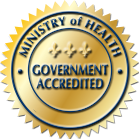Most people who complete a residential rehab treatment program can go on to live productive clean and sober lives, for them, while the worst days are behind them they know that remaining true to their commitment to sobriety is a way of life.
However, we must not forget about the ones who quickly relapse back into their old patterns even after completing an addiction treatment program.
Below you will find information that is pertinent and provides some insight into the various reasons for relapse, and what steps must be taken so that they can get their lives and their recovery back on track.
Why Relapses Occur
There can be so many reasons as to why someone “slips” even after they have completed an addiction treatment program. The most common are as follows:
Stress. This is one of the most common reasons. Leaving a safe and secure environment like residential rehab, and returning home to the routine of daily life may be a stressful experience for some. Many individuals are not physically or psychologically prepared to face the responsibilities of home, school or work, especially as a sober person. There are cases where the graduate goes back home to an environment that is not supportive or conducive to recovery, this too can make someone easily fall off the bandwagon. This is why while they are still in rehab, clients are taught how to overcome nerve-racking situations and control stress. The sad truth is though some people will fall back into their “old” habits primarily because is how they always coped before, and they have been conditioned to do so.
Temptation. Just as discussed under stress, an individual’s home environment may often be the cause of their problem. Sometimes it is as simple as being in a home where someone drinks, or uses, or is not supportive. It can also happen when in social situations where drinking or using happened before.
Initial slip-ups. For some, they feel hopeless, especially after their first slip up back into old habits, this can spiral out of control and become a full relapse.
How to Manage Relapse
Here you will find helpful suggestions for individuals who “fall off the wagon” and their loved ones.
- Understand that even after making a single mistake does not mean that many other mistakes must follow.
- Don’t become hopeless because you have made a mistake. This doesn’t mean that your world is going to come crashing down
- Leave the environment that has helped play a role in the relapse.
- Get help. it is essential to reach out and get help immediately. This help can be in the form of a loved one, a sponsor, or a counselor that you worked closely with in your rehab program.
Detox and Relapse
Relapse during detox may occur because of the uncomfortable withdrawal symptoms experienced during the process. For example, while alcohol withdrawal is not always life-threatening, the intensity of the symptoms can cause enough stress and discomfort that an individual goes back to alcohol to avoid the discomfort.
The most common detox withdrawal symptoms are anxiety, depression, sleeplessness, restlessness, mood swings, strong cravings and in the most severe cases; hallucinations and seizures or DTs (delirium tremens).
For these reasons alone, alcohol detox must be done in the presence of treatment professionals. Detox professionals help provide the proper medical and psychological support during this challenging difficult time, but one of the most important steps of the recovery process.
Get Help Now! 1-888-999-8101










